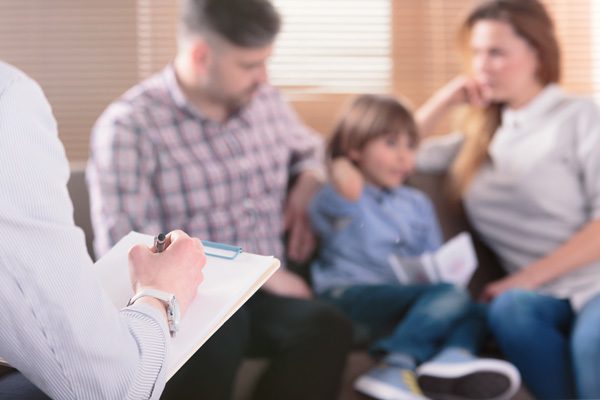
The Benefits of Family Therapy
Family support remains one of the most powerful and effective tools to help an individual recover from alcohol and drug abuse.
Remember, addiction is a disease. If a loved one was suffering from cancer or heart disease, you would be there for them. It’s no different when someone is struggling with drug or alcohol addiction. While it is emotionally charged and always difficult, family therapy can be a key part of the success of anyone’s recovery.
Who Benefits from Family Therapy?
Anyone struggling with drug or alcohol abuse, or at the early stages of using, benefits from family therapy. It can also be helpful to those who:
- Have suffered an overdose
- Continue to use drugs and alcohol
- Have a family member they support that uses drugs or alcohol
- Want to learn how to improve communication during recovery
- Have been negatively impacted by a loved one’s use of drugs or alcohol
Though drug abuse treatment will always need a component of individual counseling to be effective, group and family therapy is also valuable. In this treatment form, people come together to talk about the addiction, work to build connections, and improve communication. If you or your loved one is suffering from addiction, consider the value of family therapy.
Is Family Therapy Beneficial?
Every situation is different. However, the National Institute on Drug Abuse recommends it as a component to a comprehensive addiction treatment program.
Drug abuse tends to be a family disease. In other words, it is a condition that impacts every component of the family’s system. It creates stress, changes routines, and causes financial turmoil. It can also put family members in terrifying situations.
Key benefits of family therapy include:
- Creating a motivational support team for the individual
- Easing feelings related to anger and fear
- Providing education and tools for family members to deal with addiction and recovery
- Creating strategies to empower families to work through addiction
- Promoting improved communication within the family unit
Every family therapy session is unique. It is meant to provide an opportunity to undercover and understand a way forward. This could mean, for example, creating rules on financial support and communication needs. It also focuses on providing family members with the emotional support they need for their personal wellbeing, not just helping the individual suffering from addiction.
What Happens in Family Therapy Sessions?
Some people shy away from family therapy because they do not believe they can help. Others believe they will simply be blamed for the addiction. However, these sessions do not focus on blame at all. Rather, they are an opportunity to discuss the situation in real time. What needs to be done to help a loved one to overcome their addiction? And, what responsibility does each person play in that process?
Key areas of focus may include the following:
- Codependency: Codependency occurs when a person’s life comprehensively changes as a result of the addictive behaviors of another person. The codependent spends a lot of time worrying, is living in denial, and may have his or her own low self-esteem as a result of the condition. During family therapy, discussions about how this occurs and how to stop it are brought up.
- Enabling: Enabling occurs when a person’s actions are dismissed by a loved one due to some component of fear or love. For example, a loved one provides a home and food for someone who he or she knows is abusing drugs in order to keep them safe. Any instance of accepting a loved one’s justifications for their abuse can fit into enabling behavior.
- Family Life: Topics related to day-to-day living are often a key component of family therapy sessions. This may mean creating a plan for living arrangements for the individual and creating goals for each member of the family. Defining the actual role, or lack of involvement, each member of the family may have in the recovery process is also discussed.
It’s important in most situations for a family therapy session to be a positive experience for each member. Building hope, motivation, and trust are all important components of this process.
Every member of the family needs to make an effort – even if it is very difficult to do. Sometimes, family members need their own one-on-one counseling sessions with a provider to discuss the scars and struggles they have. This can be done within the same environment.
From detoxification through to long-term recovery, individuals benefit from family therapy and support. Even if family means just one other person, it can make a big difference in a person’s life and recovery.
